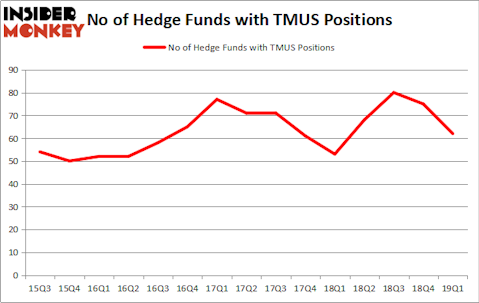It is already common knowledge that individual investors do not usually have the necessary resources and abilities to properly research an investment opportunity. As a result, most investors pick their illusory “winners” by making a superficial analysis and research that leads to poor performance on aggregate. Since stock returns aren’t usually symmetrically distributed and index returns are more affected by a few outlier stocks (i.e. the FAANG stocks dominating and driving S&P 500 Index’s returns in recent years), more than 50% of the constituents of the Standard and Poor’s 500 Index underperform the benchmark. Hence, if you randomly pick a stock, there is more than 50% chance that you’d fail to beat the market. At the same time, the 20 most favored S&P 500 stocks by the hedge funds monitored by Insider Monkey generated an outperformance of 6 percentage points during the first 5 months of 2019. Of course, hedge funds do make wrong bets on some occasions and these get disproportionately publicized on financial media, but piggybacking their moves can beat the broader market on average. That’s why we are going to go over recent hedge fund activity in T-Mobile US, Inc. (NASDAQ:TMUS).
Is T-Mobile US, Inc. (NASDAQ:TMUS) the right investment to pursue these days? Prominent investors are reducing their bets on the stock. The number of bullish hedge fund positions shrunk by 13 in recent months. Our calculations also showed that TMUS isn’t among the 30 most popular stocks among hedge funds.
So, why do we pay attention to hedge fund sentiment before making any investment decisions? Our research has shown that hedge funds’ small-cap stock picks managed to beat the market by double digits annually between 1999 and 2016, but the margin of outperformance has been declining in recent years. Nevertheless, we were still able to identify in advance a select group of hedge fund holdings that outperformed the market by 40 percentage points since May 2014 through May 30, 2019 (see the details here). We were also able to identify in advance a select group of hedge fund holdings that underperformed the market by 10 percentage points annually between 2006 and 2017. Interestingly the margin of underperformance of these stocks has been increasing in recent years. Investors who are long the market and short these stocks would have returned more than 27% annually between 2015 and 2017. We have been tracking and sharing the list of these stocks since February 2017 in our quarterly newsletter. Even if you aren’t comfortable with shorting stocks, you should at least avoid initiating long positions in our short portfolio.

We’re going to take a gander at the recent hedge fund action encompassing T-Mobile US, Inc. (NASDAQ:TMUS).
What have hedge funds been doing with T-Mobile US, Inc. (NASDAQ:TMUS)?
At the end of the first quarter, a total of 62 of the hedge funds tracked by Insider Monkey held long positions in this stock, a change of -17% from one quarter earlier. By comparison, 53 hedge funds held shares or bullish call options in TMUS a year ago. With hedge funds’ sentiment swirling, there exists a select group of key hedge fund managers who were upping their stakes considerably (or already accumulated large positions).

Of the funds tracked by Insider Monkey, Citadel Investment Group, managed by Ken Griffin, holds the most valuable position in T-Mobile US, Inc. (NASDAQ:TMUS). Citadel Investment Group has a $324.6 million position in the stock, comprising 0.2% of its 13F portfolio. The second most bullish fund manager is Maverick Capital, managed by Lee Ainslie, which holds a $237.3 million position; the fund has 3.1% of its 13F portfolio invested in the stock. Remaining peers that hold long positions comprise Andrew Immerman and Jeremy Schiffman’s Palestra Capital Management, Daniel S. Och’s OZ Management and John Paulson’s Paulson & Co.
Judging by the fact that T-Mobile US, Inc. (NASDAQ:TMUS) has experienced bearish sentiment from the smart money, it’s safe to say that there were a few hedge funds that slashed their full holdings in the third quarter. Intriguingly, Andreas Halvorsen’s Viking Global cut the largest position of all the hedgies monitored by Insider Monkey, totaling about $219.6 million in stock. Andy Redleaf’s fund, Whitebox Advisors, also sold off its stock, about $42.1 million worth. These bearish behaviors are important to note, as total hedge fund interest fell by 13 funds in the third quarter.
Let’s check out hedge fund activity in other stocks similar to T-Mobile US, Inc. (NASDAQ:TMUS). We will take a look at Baidu, Inc. (NASDAQ:BIDU), Lloyds Banking Group PLC (NYSE:LYG), Charles Schwab Corp (NYSE:SCHW), and Simon Property Group, Inc (NYSE:SPG). This group of stocks’ market caps resemble TMUS’s market cap.
| Ticker | No of HFs with positions | Total Value of HF Positions (x1000) | Change in HF Position |
|---|---|---|---|
| BIDU | 53 | 2734702 | 2 |
| LYG | 8 | 43491 | -2 |
| SCHW | 51 | 3140234 | 5 |
| SPG | 28 | 897496 | 2 |
| Average | 35 | 1703981 | 1.75 |
View table here if you experience formatting issues.
As you can see these stocks had an average of 35 hedge funds with bullish positions and the average amount invested in these stocks was $1704 million. That figure was $2676 million in TMUS’s case. Baidu, Inc. (NASDAQ:BIDU) is the most popular stock in this table. On the other hand Lloyds Banking Group PLC (NYSE:LYG) is the least popular one with only 8 bullish hedge fund positions. Compared to these stocks T-Mobile US, Inc. (NASDAQ:TMUS) is more popular among hedge funds. Our calculations showed that top 20 most popular stocks among hedge funds returned 1.9% in Q2 through May 30th and outperformed the S&P 500 ETF (SPY) by more than 3 percentage points. Hedge funds were also right about betting on TMUS as the stock returned 10% during the same period and outperformed the market by an even larger margin. Hedge funds were clearly right about piling into this stock relative to other stocks with similar market capitalizations.
Disclosure: None. This article was originally published at Insider Monkey.





